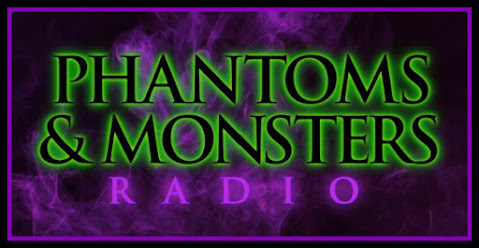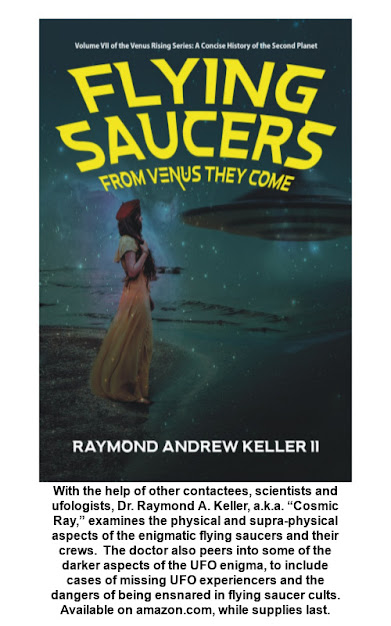Have there ever been dog-like humans, canid humanoids or bi-pedal canines in recorded history? Are these indigenous beings, or interdimensional flesh-and-blood entities?
The Kynocephaloi (or Cynocephali) were an Indian and African tribe of dog-headed men. The name Kynokephalos means dog-headed, from "kuôn," a dog, and "kephalos," head.
"On these [the Indian] mountains there live men with the head of a dog, whose clothing is the skin of wild beasts. They speak no language, but bark like dogs, and in this manner make themselves understood by each other. Their teeth are larger than those of dogs, their nails like those of these animals, but longer and rounder. They inhabit the mountains as far as the river Indos. Their complexion is swarthy. They are extremely just, like the rest of the Indians with whom they associate. They understand the Indian language but are unable to converse, only barking or making signs with their hands and fingers by way of reply, like the deaf and dumb. They are called by the Indians Kalystrii, in Greek Kynocephaloi (Cynocephali) (Dog-Headed). They live on raw meat and number about 120,000.
The Kynokephaloi living on the mountains do not practice any trade but live by hunting. When they have killed an animal they roast it in the sun. They also rear numbers of sheep, goats, and asses, drinking the milk of the sheep and whey made from it. They eat the fruit of the Siptakhora, whence amber is procured, since it is sweet. They also dry it and keep it in baskets, as the Greeks keep their dried grapes. They make rafts which they load with this fruit together with well-cleaned purple flowers and 260 talents of amber, with the same quantity of the purple dye, and 1000 additional talents of amber, which they send annually to the king of India. They exchange the rest for bread, flour, and cotton stuffs with the Indians, from whom they also buy swords for hunting wild beasts, bows, and arrows, being very skillful in drawing the bow and hurling the spear. They cannot be defeated in war, since they inhabit lofty and inaccessible mountains. Every five years the king sends them a present of 300,000 bows, as many spears, 120,000 shields, and 50,000 swords.
They do not live in houses, but in caves. They set out for the chase with bows and spears, and as they are very swift of foot, they pursue and soon overtake their quarry. The women have a bath once a month, the men do not have a bath at all, but only wash their hands. They anoint themselves three times a month with oil made from milk and wipe themselves with skins. The clothes of men and women alike are not skins with the hair on, but skins tanned and very fine. The richest wear linen clothes, but they are few in number. They have no beds, but sleep on leaves or grass. He who possesses the greatest number of sheep is considered the richest, and so in regard to their other possessions. All, both men and women, have tails above their hips, like dogs, but longer and more hairy. They are just, and live longer than any other men, 170, sometimes 200 years." - Ctesias, Indica Fragment (summary from Photius, Myriobiblon 72) (trans. Freese) (Greek historian C4th B.C.)
There are other references to the Kynocephaloi:
"In the same part of India as the [crimson-dye] beetles, are born the Kynokephaloi, as they are called--a name which they owe to their physical appearance and nature. For the rest they are of human shape and go about clothes in the skins of beasts; and they are upright and injure no man; and though they have no speech they howl; yet they understand the Indian language. Wild animals are their food, and they catch them with the utmost ease, for they are exceedingly swift of foot; and when they have caught them they kill and cook them, not over a fire but by exposing them to the sun's heat after they have shredded them into pieces. They also keep goats and sheep, and while their food is the flesh of wild beasts, their drink is the milk of the animals they keep. I have mentioned them along with brute beasts, as is logical, for their speech is inarticulate, unintelligible, and not that of man."
"After traversing the Egyptian oasis one is confronted for seven whole days with utter desert. Beyond this live the human Kynoprosopoi (Cynoprosopi) (Dog-Faces) along the road that leads to Aithiopia (Ethiopia). It seems that these creatures live by hunting gazelles and antelopes; further, they are black in appearance, and they have the head and teeth of a dog. And since they resemble this animal, it is very natural that I should mention them here [in a book on Animals]. They are however not endowed with speech, but utter a shrill squeal. Beneath their chin hangs down a beard; we may compare it with the beards of Drakones, and strong and very sharp nails cover their hands. Their whole body is covered with hair--another respect in which they resemble dogs. They are very swift of foot and know the regions that are inaccessible: that is why they appear so hard to capture."
"It occurs to me now to mention the following additional facts relating to Kynokephaloi (Cynocephali) [thought to derive from travellers accounts of baboons]. If a Kynokephalos finds some edible object with a shell on it (I mean almonds, acorns, nuts) its strips the shell off and cleans it out, after first breaking it most intelligently, and it knows that the contents are good to eat but that the outside is to be thrown away. And it will drink whine, and if boiled or cooked meat is served to it, it will eat its fill; and it likes well-seasoned food, but food boiled without any care it dislikes. If it wears clothes, it is careful of them; and it does everything else that I have described. If you put it while still tiny to a woman's breast, it will suck the milk like a baby." - Aelian, On Animals - (trans. Scholfield) (Greek natural history C2nd A.D.)
Then there is this reference:
"Men go by the sea ocean by many isles, unto an isle that is called Nacumera, that is a good isle and fair. And it is in compass about more than a thousand mile. And all the men and women of that isle have hounds' heads, and they be called Cynoceptales (Greek for 'dog heads'). And they be full reasonable and of good understanding, save that they worship an ox for their God. And also every one of them beareth an ox of gold or of silver in his forehead, in token that they love well their God. And they go all naked save a little clout. They be great folk and well-fighting. And they have a great targe [shield] that covereth all the body, and a spear in their hand to fight with. And if they take any man in battle, anon they eat him." - The Travels of Sir John Mandeville
In the Eastern Orthodox Church, certain icons covertly identify Saint Christopher with the head of a dog. The background to the dog-headed Christopher is laid in the reign of the Emperor Diocletian, when a man named Reprebus, Rebrebus or Reprobus (the "reprobate" or "scoundrel") was captured in combat against tribes dwelling to the west of Egypt in Cyrenaica. To the unit of soldiers, according to the hagiographic narrative, was assigned the name numerus Marmaritarum or "Unit of the Marmaritae", which suggests an otherwise-unidentified "Marmaritae" (perhaps the same as the Marmaricae Berber tribe of Cyrenaica). He was reported to be of enormous size, with the head of a dog instead of a man, apparently a characteristic of the Marmaritae. This Byzantine depiction of St. Christopher as dog-headed resulted from their misinterpretation of the Latin term Cananeus to read canineus, that is, "canine.
As well, in the Chinese record History of the Liang Dynasty , the Buddhist missionary Hui-Sheng describes an island of dog-headed men to the east of Fusang, a nation he visited variously identified as Japan or the Americas. The History of Northern Dynasties of Li Yanshou, a Tang dynasty historian, also mentions the 'dog kingdom'.
'The Travels of Marco Polo' mentions the dog-headed barbarians on the island of Angamanain, or the Andaman Islands. Polo states that, although these people grow spices, they are nonetheless cruel and "are all just like big mastiff dogs".
There are many other references to dog-headed men or people with canine ancestry though, these seem to be more legend than reality. For instance, the Koniagas, a tribe of North American native people on Kodiak Island. They trace their pedigree back to a dog, not unlike many other native Americans who believe the wolf or the coyote are the true origin of their people. Could any of this be factual? I've been known to say that a legend most likely has some truth behind it.
If you wish to comment on this Phantoms & Monsters post, please go to Phantoms & Monsters Post Comments
-----
PHANTOMS & MONSTERS Radio - Cryptid Roundtable Discussion - Investigators & Researchers
Josh "Wolf" Turner Host of The Paranormal Round Table. Proud Texan who grew up around the paranormal and supernatural having many personal experiences and witnessing otherworldly phenomena. Josh is a master storyteller who has been collecting paranormal stories as a personal passion since his experience with an upright canine changed his life as a young man. Opening his eyes to the paranormal. Paranormal Round Table has live shows every Tuesday nights and new content every Friday night premiering shows on different paranormal topics.
Ron Murphy, 'The Crypto Guru,' has been investigating the stuff of nightmares for over 30 years. He has delved deeply into the shadows to shed light on the things that go bump in the night and meticulously researched the historical and psychological context of myths and legends from around the world. Ron seeks to uncover the archetypal precedent for the monsters that haunt our collective thoughts.
Kenney W. Irish AKA 'The Cryptopunkologist,' is an author, hardcore/punk musician and sales/marketing professional. Originally from the northern parts of Vermont, he has recently re-located to the beautiful Adirondacks area of upstate New York. He has a lifelong love of folklore, legends, monsters, and U.F.O stories. He has regularly attended and spoke at writers' groups, and various other platforms across the country. He has a passion for writing young readers chapter books. You can also catch him as co-host for the NYBS radio show alongside Gary Robusto.
Elijah Henderson is owner of the Cryptid Studies Institute. He is the host of the YouTube Series Nightmare Nuggets of Cryptid Terror, and has been engaged in the cryptid field since 2002. When he is not editing or creating the latest Nightmare Nugget, he enjoys active research in the field. Elijah has been a public speaker since he was eleven years old.
-----
-----
Have you had a sighting of a winged humanoid or huge bat-like creature in the Chicago, Illinois metro area / Lake Michigan region? The entity has also been referred to as the 'Chicago Mothman', 'Chicago Owlman' & 'O'Hare Mothman.' - Chicago / Lake Michigan Winged Humanoid Regional Interactive Map - Please feel free to contact me at lonstrickler@phantomsandmonsters.com - your anonymity is guaranteed. Our investigative group is conducting a serious examination of his phenomenon. We are merely seeking the truth and wish to determine what eyewitnesses have been encountering. Your cooperation is truly appreciated.
Please Consider a Donation to 'Phantoms & Monsters'
Your financial support of Phantoms & Monsters and our other pursuits is much appreciated. This all depends on you, the readers & followers.
Please use the PayPal donation buttons on the blog site. You can also go directly to Phantoms & Monsters donation. Thanks again for your loyalty and continued support. Lon
© 2005-2022 Phantoms & Monsters - All Rights Reserved
from Phantoms and Monsters - Real Eyewitness Cryptid Encounter Reports https://bit.ly/3Ig8n4p

















No comments:
Post a Comment
Let us know what you think